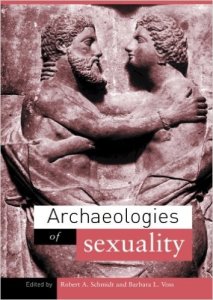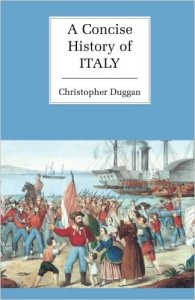A few weeks ago, the world felt like a safer place, before my country decided to vote out of the EU. I woke up in a new world, not quite a desert island, but certainly a more uncomfortable place, where archaeological opportunities are going to be (even more) thin on the ground. So, I need distracting, just as I expect I’ll be doing at least a couple of 1x1s on this hypothetical island. Here are the books that I hope will do the job:
Chris Fowler, The Archaeology of Personhood
This slim volume might feel not the best value per volume- it’s short, straightforward and easy to read. But it introduces some complex ideas, and it was my first encounter with the idea that people do not only conceive of themselves as individuals. The mixture of anthropological analogy and archaeological case studies is intoxicating: this is the book that set me off down a winding theoretical road.
Jean MacIntosh Turfa (ed.), The Etruscan World
This is the opposite end of the scale- a book that’s more or less a brick. It contains chapters on every aspect of Etruscan society, with intense references to almost every known site in Tuscany and beyond. It will last me weeks and weeks, putting all the information I still have to double check (where was that inscription referencing the magistrate in charge of weights from again?) into my skull.
 Barb Voss and Robert Schmidt (eds.), Archaeologies of Sexuality
Barb Voss and Robert Schmidt (eds.), Archaeologies of Sexuality
While in some respects this book drives me nuts (why have an Etruscan sarcophagus on the cover if you’re never going to talk about them again?) in others it was incredibly influential. I had this obsession with archaeological approaches to sex during my MA year- I still feel strongly that we hide away from the fact that people in the past were, you know, doing it. The clever papers in this volume show how to expose “it’s” many forms, and expose a lot of assumptions along the way.
Richard Bradley, The Passage of Arms
I love a bit of post-processual prehistory, me. A classic, great fun, it captures a phase of modern archaeological thought and presents a compelling vision of the past. Who could ask for anything more?
Iris Young, Throwing Like a Girl and other essays in feminist philosophy and social theory
Oh this book. The chapter on breasted experience. The in-depth analysis of the movements of a little girl on a beach. The realisation that our bodies are conditioned to maintain sexist norms, that our experiences are drawn through and defined by those bodies. A major feminist thinker, an important phenomenological philosopher.
Vedia Izzet, The Archaeology of Etruscan Society
This woman is responsible for unleashing me on the world of Etruscan archaeology. She is also responsible for this wonderful volume, that tries to revolutionise a sub-discipline that is still largely defined by problematic interpretative tropes. It’s bold, it’s brave, it’s inspirational. It’s still relevant almost a decade on from its first publication- I must write a review of those ten years! Maybe I’ll have time on the island.
Bronislaw Malinowski, A Diary in the Strict Sense of the Term
I don’t think I can go to a desert island without this. This is the man who developed the “participant observer” method in social anthropology, the man who decided to go and live with his subjects instead of pontificating from afar. However, his diaries expose all his neuroses, quirks and a lot of behaviour that is repellent: behaviour directed towards his hosts, and towards the women in his life. It’s disturbing, but must be read.
 Christopher Duggan, A Concise History of Italy
Christopher Duggan, A Concise History of Italy
I love Italy. I love to speak the language, I love to talk with people in its cities and villages, I love its archaeology, I love its landscapes. I would love to think I understand it, even a little, but I’m not sure I ever will. This book helps.
Elena Ferrante, The Neapolitan Novels
All four of them in one volume, please. There is simply so much in these books, which have recently become fashionable but are meaningful beyond mere trends. Feminism, social history, and heartbreak, all in the most elegant prose. I will have time to read them in the original Italian on this island, and I’m going to make the most of it.
Tamora Pierce, Song of the Lioness Quartet Omnibus
Cheating, cheating, cheating. These young adult novels are still my safe space, a go-to when things go wrong. They feature a strong and believable young heroine, and the writing style has influenced my own in all sorts of distinctive ways that only another Pierce fan would spot. When I don’t catch any fish and the ships pass me by, I can hide in Pierce’s magical world and ask what the Lioness would do. I’m saddened they have been largely forgotten by young audiences today, a dose of feminist inspiration that I think is still badly needed.
Lucy Shipley is a specialist in Etruscan archaeology. She received her PhD from the University of Southampton, and has most recently been a Visiting Fellow at the National University of Ireland, Galway. She blogs, tweets (@lshipley805), and fights the (archaeological) patriarchy when and where she can. Lucy’s new popular archaeology book on the Etruscans is due to be published later this year, so keep your eyes peeled.
